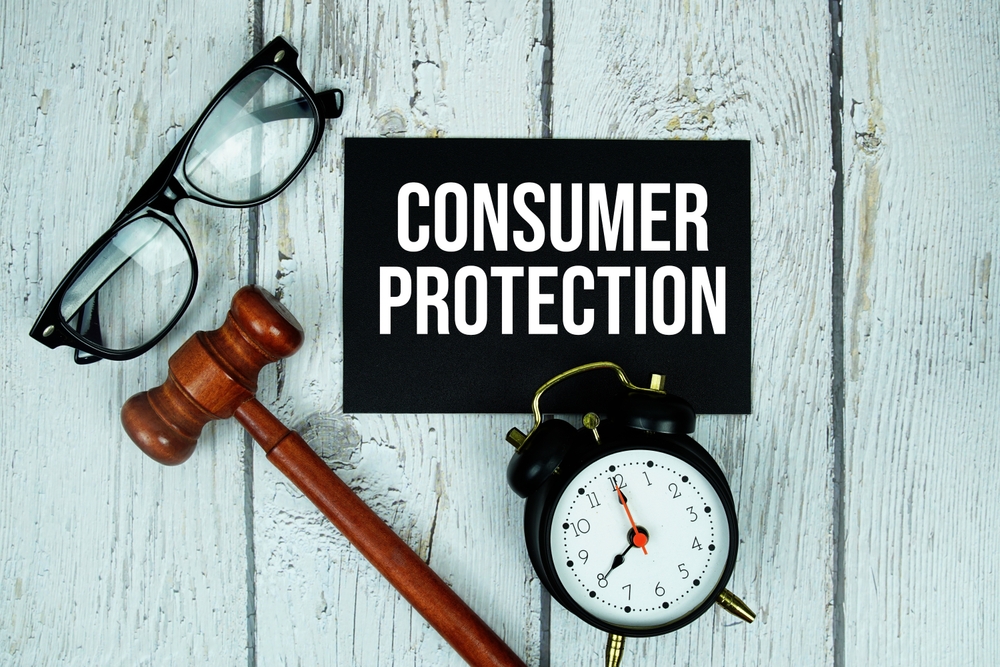Spotting and avoiding debt collection scams can be challenging, as scammers are becoming increasingly sophisticated in their tactics. These scams often target individuals already in financial distress, making them vulnerable to manipulation and deception.
It is important to be aware of the red flags that can indicate a debt collection scam, such as threats or harassment, refusal to provide written documentation, or demands for immediate payment. To protect yourself from these scams, seek to educate yourself about your rights as a consumer and stay vigilant.
If you believe a debt collection scam has targeted you, report it to the authorities, and then contact a FDCPA lawyer near you to seek assistance and guidance. You likely have important legal rights, and you should never hesitate to exercise them with the right legal assistance.
Understanding Debt Collection Scams

Debt collection scams are schemes designed to deceive and defraud debtors. Scammers often pose as legitimate debt collectors in an effort to extort money from unsuspecting individuals. They use various tactics, such as intimidation, harassment, and misinformation, to coerce debtors into making payments. Understanding how these scams operate is vital to recognize the warning signs and protect yourself.
Common Debt Collection Scams
Understanding the common debt collection scams can help you spot a scammer and avoid falling victim to them. Here are some of the most prevalent scams you should be aware of:
Fake Debt Collectors
One of the most common debt collection scams involves fake debt collectors. These scammers often reach out to individuals via phone, email, or mail, claiming to be collecting a debt on behalf of a legitimate creditor. They may have access to personal information, making their claims appear more convincing. However, it is important to remember that genuine debt collectors are required to provide written verification of the debt within five days of contacting you. If a debt collector refuses to provide this verification or becomes aggressive or threatening, it is likely a scam.
Impersonation of Legitimate Businesses
Scammers may also impersonate legitimate businesses to collect debts. They may use similar names, logos, or even phone numbers to make their calls appear genuine. These scammers rely on individuals not verifying the legitimacy of the debt collection effort, often pressuring them into making immediate payments. Remember, when in doubt, contact the business directly to confirm the debt before providing personal or financial information.
Government Agency Scams
Another common debt collection scam involves scammers posing as representatives of government agencies such as the Internal Revenue Service (IRS). These scammers may contact individuals claiming they owe back taxes or other government-related debts. They may even threaten legal action or arrest if immediate payment is not made. Keep in mind that government agencies typically communicate through official channels and do not request immediate payment over the phone. Verify any claims made by contacting the agency directly.
Payday Loan Scams
Payday loan scams target individuals who have taken out or applied for such loans online. Scammers may contact individuals claiming they owe outstanding balances and threaten legal action if not paid promptly. They often request payment through non-traceable methods such as gift cards or wire transfers. Legitimate lenders will never ask for payment in this manner. If you receive such a call, contact your payday loan provider to verify the debt and report the scam.
Phantom Debt Scams
Phantom debt scams involve scammers attempting to collect debts that do not exist or that individuals have already paid. These scammers rely on fear and intimidation tactics to pressure individuals into making payments they don’t owe. If you receive a call or notice regarding a debt you are sure you do not owe, ask for written verification of the debt and verify it independently before taking any further action.
Keep in mind that individuals of all ages and backgrounds can fall victim to any of these scams.
Recognizing Red Flags
Several red flags may indicate a debt collection scam. By being familiar with these warning signs, you can avoid falling prey to these fraudulent schemes. Here are some of the key indicators to watch out for:
- Threats or Harassment: Legitimate debt collectors are not allowed to threaten or harass you. If a collector is verbally abusive, uses foul language, or threatens violence or legal action, it can be a sign of a scam.
- Lacking Proper Identification: Legitimate debt collectors will provide their name and contact information and the name and contact information of the debt collection agency they represent. They should also be able to provide proof of their identity and authorization to collect the debt.
- Phishing Emails and Websites: Scammers use phishing emails or websites that mimic legitimate debt collection agencies or financial institutions to trick debtors into providing personal information or making payments.
- Refusal to Provide Written Documentation: Debt collectors are legally required to provide written documentation outlining the details of the debt, including the amount owed and the original creditor. If a collector refuses to provide this information or is evasive about it, it is likely a scam.
- Demands for Immediate Payment: Scammers often demand immediate payment and may try to pressure you into making a payment over the phone or through unconventional methods like wire transfers or gift cards. Legitimate debt collectors will provide payment options and allow you time to consider your options.
- Unusual Payment Requests: Be cautious if a debt collector asks you to make a payment using unconventional methods such as prepaid debit cards, wire transfers, or virtual currencies. Scammers favor these payment methods because they are difficult to trace and recover once the money is sent.
- Lack of information: Legitimate debt collectors are required to provide detailed information about the debt, including the creditor’s name, the amount owed, and how to dispute the debt. If the collector is unable or unwilling to provide this information, it can be a red flag.
- Suspicious contact methods: Be cautious if you receive unsolicited calls, emails, or text messages demanding payment. Legitimate debt collectors will typically send written notices through regular mail before resorting to other means of communication.
- False Claims of Legal Action: Scammers may falsely claim that they will sue you, have you arrested, or ruin your credit if you do not make immediate payments. Legitimate debt collectors cannot make these threats, and it is important to remember that they have to follow certain legal procedures.
Tips to Verify Legitimate Debt Collection Agencies
To avoid debt collection scams, it is crucial to know how to verify the legitimacy of a debt collection agency. Here are some tips to help you with the verification process:
Request Written Validation

If a debt collector contacts you, ask them to provide written proof of the debt, including the original creditor’s name and contact information. This should include detailed information such as the amount owed, the original creditor, and other pertinent details. Legitimate collectors can provide this information on request.
Do Your Research
Take the time to research the debt collection agency online. Look for reviews, complaints, and any history of fraudulent activities. Visit the Better Business Bureau or the Consumer Financial Protection Bureau’s website to check if any complaints have been filed against the agency.
Check for Proper Licensing and Accreditation
In many states, debt collection agencies must be licensed. Contact your state’s licensing department to verify the agency’s legitimacy. Additionally, look for accreditation from reputable organizations such as ACA International or the International Association of Commercial Collectors.
Contact the Original Creditor
Contact the original creditor directly to confirm whether they have hired a debt collection agency to pursue the debt. This step can help ensure that the debt collector is legitimate.
Know Your Rights
Familiarize yourself with the Fair Debt Collection Practices Act (FDCPA), which outlines your rights as a consumer when dealing with debt collectors. Understanding your rights will help you detect and respond appropriately to unlawful practices.
Keep Records of Communication
Maintain a record of all communication with debt collectors, including dates, times, names, and any relevant details. This documentation will be helpful in case you need to dispute any false claims or report a scam.
Be Wary of Unsolicited Contact
If you receive a call or email from a debt collector without any prior correspondence or knowledge of the debt, proceed cautiously. Scammers often use unsolicited contact to target unsuspecting individuals.
Contact a Consumer Protection Attorney
If you believe that a debt collection scam has targeted you, it is important to seek legal advice. Contact an experienced consumer protection attorney near you to discuss your situation and explore your options.
Protecting Personal Information

Protecting your personal information is imperative in avoiding debt collection scams. Here are some tips to keep your information safe:
- Be cautious when sharing personal information: Avoid sharing sensitive information, such as your Social Security number, bank account details, or credit card information, over the phone or through email unless you have verified the recipient’s legitimacy.
- Use secure digital channels: When communicating with debt collectors online, ensure that you are using secure websites or portals. Look for the lock icon in the browser’s address bar and “https” in the URL to indicate a secure connection.
- Keep your devices secure: Install up-to-date antivirus software on your computer and mobile devices. Use strong, unique passwords for your online accounts and enable two-factor authentication whenever possible.
- Monitor your accounts regularly: Review your bank statements and credit reports regularly to identify unauthorized or fraudulent activities. Report any suspicious transactions to your financial institution immediately.
Understanding Your Rights as a Debtor
Understanding your rights as a debtor is important when dealing with debt collection efforts. Here’s what you need to know:
- Fair Debt Collection Practices Act (FDCPA): The FDCPA sets guidelines for how debt collectors can legally conduct their activities. It prohibits harassment, deception, and unfair practices. Familiarize yourself with the rights outlined in this act to protect yourself from abusive collectors.
- Right to dispute the debt: If you believe the debt is not yours or the amount is incorrect, you have the right to dispute it. Send a written dispute letter to the collection agency within 30 days of receiving the initial notice.
- Cease and desist letter: If you want a debt collector to stop contacting you, you can send a cease and desist letter requesting them to cease all communication. However, this does not absolve you of the debt itself.
- Statute of limitations: Each state has a statute of limitations that sets a time limit within which a debt collector can sue you for repayment. Once the statute of limitations expires, the collector loses the legal right to pursue the debt through the court system.
Reporting Suspected Scams
If you believe a debt collection scam is targeting you, report the incident to the appropriate authorities. Contact your state’s attorney general’s office, the Federal Trade Commission (FTC), and the Consumer Financial Protection Bureau (CFPB). These agencies can investigate the scam and take action against the perpetrators.
Were You Targeted in a Debt Collection Scam? Contact a Skilled Consumer Protection Attorney Today

Debt collection scams are a serious issue that can have devastating financial and emotional consequences for individuals already facing financial distress. By staying informed and vigilant, you can spot and avoid these scams. Remember to know your rights, request written validation of the debt, keep records of communication, verify the debt with the original creditor, be cautious of unsolicited contact, research the collection agency, and seek legal advice if needed.
If you believe a debt collection scam has targeted you, seeking professional guidance and assistance is crucial. Contact a skilled consumer protection attorney to discuss your situation and understand your legal rights. Taking prompt action can help protect yourself from further scams and potentially recover any losses.
By understanding the warning signs and knowing how to protect yourself, you can navigate the complex debt collection landscape with confidence and peace of mind. Don’t hesitate to contact an attorney for help and guidance when needed. Your financial well-being and peace of mind are worth it.